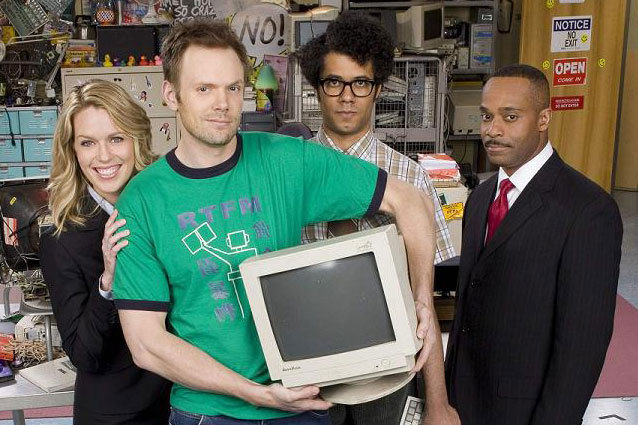
The relationship between American and British entertainment has always been a symbiotic one. We get tightly-written drama, edgy comedies and addictive game shows — while they get to enjoy re-runs of Frasier and Dog the Bounty Hunter, it’s a win-win all around.
America’s track record for sourcing original content from our British brethren is a lengthy one, going back to sitcoms such as Three’s Company, Sanford and Son to the new modern classics of The Office and Veep. But it seems our thirst for Anglo-entertainment has reached a fever pitch, as shows such as Broadchurch are being broadcasted to our shores via BBC America and put into development for an American adaptation simultaneously. The crime drama starring the most famous former Doctor Who, David Tennant, wowed critics this summer and its Americanized version is set to air on FOX next year. Broadchurch is just one of the many shows that has caught the attention of the big networks and cable. Adapted series are equally known for their spectacular successes (i.e American Idol) as there are for their miserable flops (see: Coupling, Life on Mars, Skins, The IT Crowd — shall we go on?) The show Episodes even based their whole premise on a BAFTA-award winning series having to dumb down for an American audience. So what is it about UK entertainment that renders it catnip to television execs?
The answer lies both in cultural identity and the unique production system in which British entertainment thrives, that enables their shows to be highly entertaining but prickly to translate to an American audience. When watching British entertainment or even a remake, there is a sense of foreignness and familiarity that peaks our interest and makes it palatable to our viewers. Much has been said about the British broadcasting schedule and the creative environment it creates. If you only have six or seven episodes per season to tell a story, rather than 22 episodes and multiple seasons, you’re not going to be stuck with much filler. Americans lack the patience for such a schedule; we need our fresh fall shows and our syndicated fluff. For U.S. television shows to truly be profitable, they need to hit the 100-episode watermark — and that usually comes with sacrifices along the way. Viewers almost had a mental breakdown when Mad Men went on hiatus for 17 months.
Britain serves as an incubator for ideas. They will never compete with the US in terms of physical output, but they compete on their home turf in terms of originality, and critical acclaim. We all know television can be formulaic, so it makes sense for networks to see the success of British game shows, reality programs and lifestyle shows (think Bravo) and try to translate them to an American audience to replicate the success. This phenomenon known as “McTelevision,” is media studies 101.
If American producers want to keep playing by the British playbook, they have to come up with some new maneuvers. The only reason The Office survived is because it found its own footing. These shows are already gaining a loyal fan base on BBC America, Netflix and Hulu, so sticking to the same script and shots will only alienate old fans and new. While Breaking Bad and other off-center dramas prove Americans can now stomach the unlovable and sometimes despicable protagonist that Brits adore, will audiences still put up with their antics after multiple seasons of 22 episodes? If done right — yes. But for all of our sakes, stick to cable.
More:
Fictional Lawyers We Wish Were Real
Films About the Good Old Days
Celebrity Fashion Lines You Never Heard Of
From Our Partners Stars Pose Naked for ‘Allure’ (Celebuzz)
Stars Pose Naked for ‘Allure’ (Celebuzz) 20 Grisliest TV Deaths of 2012-2013 (Vulture)
20 Grisliest TV Deaths of 2012-2013 (Vulture)


